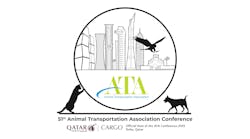House Stays with What Works in New Technical Education Bill
On May 4, Reps. Glenn “GT” Thompson (R-Pa.) and Raja Krishnamoorthi (D-Ill.) introduced the “Strengthening Career and Technical Education for the 21st Century Act.” The bill, which bears the same title as legislation that passed the House in 2016 by 400 votes but saw no action in the Senate, builds on recent reforms to the K-12 education system and enhancements to federal resources for workforce development in order to enhance flexibility for states and increase engagement of technical employers. According to the House Committee on Education and the Workforce, which is chaired by 2017 ARSA Legislative Leadership Award Winner Rep. Virginia Foxx (R-N.C.), the proposal is largely identical to the 2016 version (ARSA’s legislative team is currently performing a side-by-side comparison). Like its predecessor from the 114th Congress, this year’s legislation seeks to: (1) Empower state and local community leaders by simplifying application requirements and maximizing flexibility. (2) Improve alignment with in-demand jobs by building industry-sector partnerships. (3) Increase transparency and accountability by giving a voice to students, parents and stakeholders in assessing programs. (4) Ensure a limited federal role by minimizing the authority of the secretary of education. Each of these pillars will surely remain popular with industry members. In July, 2016, ARSA joined more than 250 other organizations on a letter to Congress praising the same values in that attempt to rebuild the nation’s career and technical education system. The association and its allies have long argued that responsive federal workforce policy should provide states and communities with the tools necessary to stimulate the growth of skills that put students into jobs – this bill pursues that end. In addition to the general attention on employer needs and local flexibility that has been sought by industry, the bill utilizes programmatic structures from the Every Student Succeeds Act and the Workforce Innovation and Opportunity Act. By taking advantage of the systems within these laws, both of which passed Congress in the last three years with bipartisan support, the new bill will help minimize burden on local governments, schools and employers while making efficient use of existing educational and workforce resources. Given the priority level of technical workforce policy in this Congress, the bill will likely be taken up by the committee in the coming weeks. Stay tuned to ARSA for updates and ways to get involved. To read a fact sheet on the bill, click here. To read a detailed bill summary, click here. To read the bill, click here.

